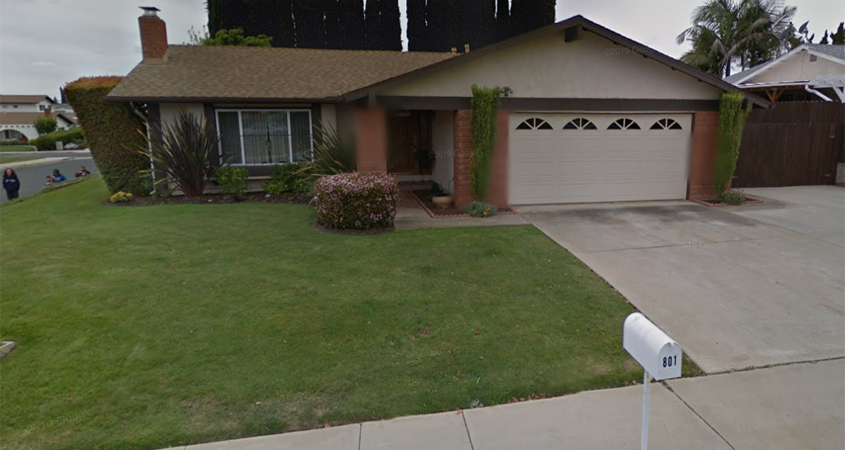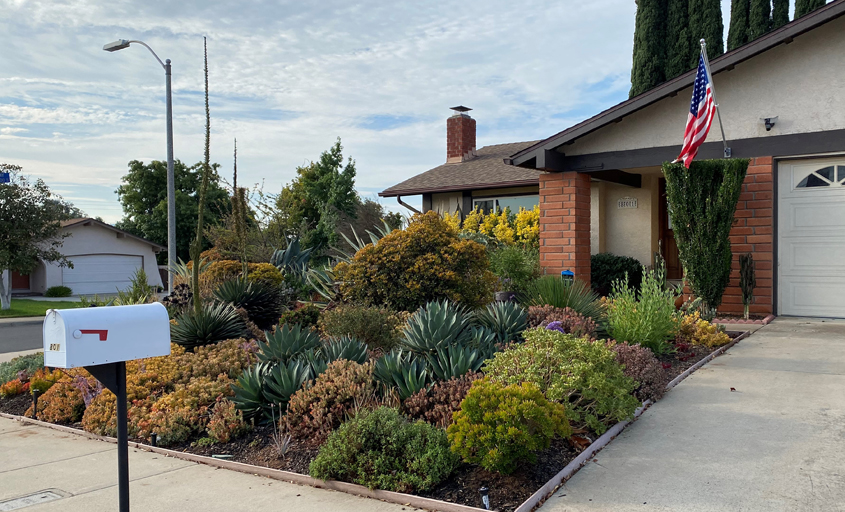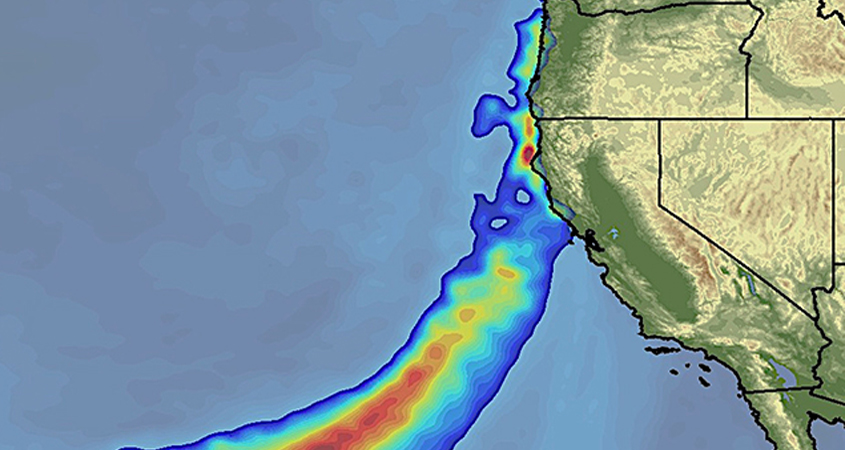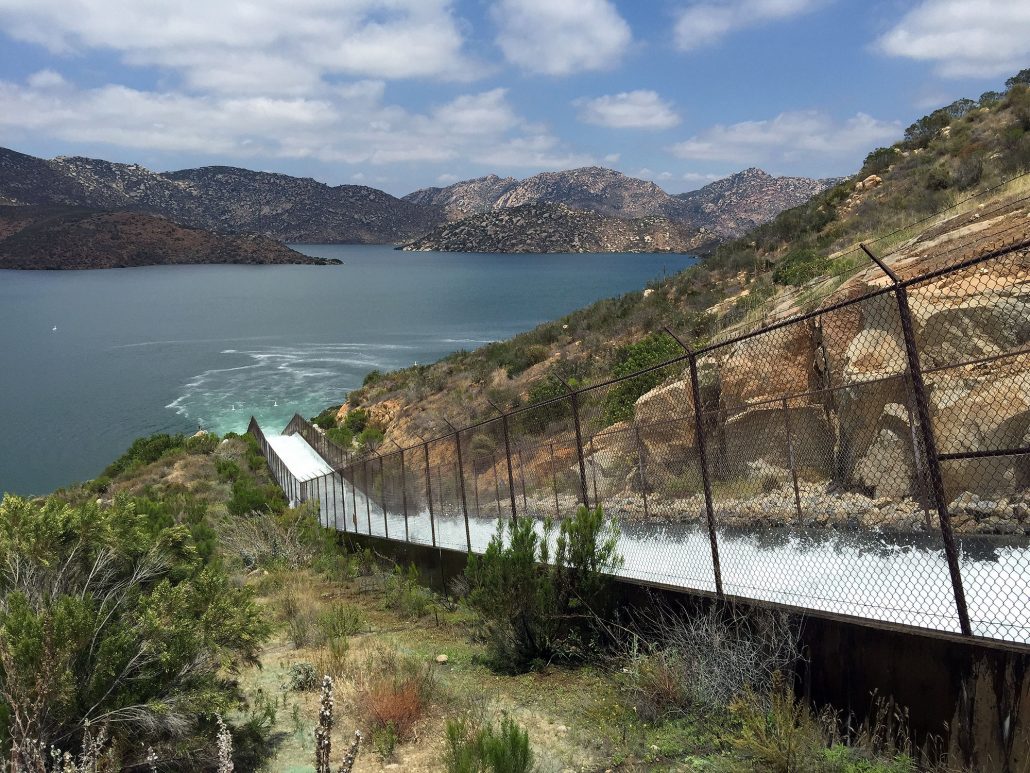The Water Authority is Resurrecting its Pipe Dream – Again
After almost 80 years of suckling the proverbial teat that brings fresh water from the Colorado River and Sierra Nevadas to San Diego, the local water manager is hatching a plan to unlatch.
After almost 80 years of suckling the proverbial teat that brings fresh water from the Colorado River and Sierra Nevadas to San Diego, the local water manager is hatching a plan to unlatch.
The San Diego County Water Authority’s asset management team recently celebrated the completion of a comprehensive condition assessment of more than 27 miles of the agency’s oldest pipelines. The assessment was performed in record time over 16 months.
The items discussed at the Aug. 3 meeting of the advisory committee on the Fallbrook/Rainbow detachment created by San Diego County’s Local Agency Formation Commission included whether the reorganization was subject to California Environmental Quality Act review, whether LAFCO can place conditions on the detachment, and the use of consultants to address issues on which parties differ.
A lush native garden low on water use but not on style won first place in the City of Escondido’s 2020 WaterSmart Landscape Contest.
To encourage customers to reduce outdoor water use, the City of Escondido recognizes its customers whose yards best exhibit the beauty of California-friendly, low-water gardening in the annual competition.

The Brants’ landscaping before its award-winning waterwise landscaping makeover. Photo: City of Escondido
Winners Todd and Susie Brant said when they moved to Escondido and experienced its hot, dry weather, they began to reconsider whether they wanted to waste water resources watering a thirsty front lawn. They took advantage of the San Diego County Water Authority’s landscape makeover classes, then learned about the Turf Replacement Program, which could help cover the costs of removing their lawn and replacing it.

The Brants selected plants they loved and “found a place” for them. Photo: City of Escondido
“We followed all the instructions carefully and were able to get the entire project paid for from the plants to the labor, and even some help from a landscape design professional,” said the Brants.

Waterwise plant choices don’t have to be boring. Photo: City of Escondido
The transformation is dramatic from a featureless patch of lawn to a palette bursting with agaves, succulents, sage, bird of paradise, dwarf bougainvillea, and more.
“As you’ll see in the photos, we have a little bit of everything!” said Susie Brant. “We just wander around the nursery, and if we like a plant, we’ll take one home and find a place for it.”
The Brants also retrofitted their irrigation system’s sprinkler heads with new ones that use much less water.

The Brants took advantage of the San Diego County Water Authority’s landscape makeover classes to help them plan their project. Photo: City of Escondido
The Water Authority’s WaterSmart Landscaping Makeover classes are now available online. The next class is scheduled for September 12. The free, three-hour workshops teach the basics of how to do a landscape makeover. Each workshop covers topics different topics. Topics include soil, design, turf removal, plant selection, planning, irrigation, rainwater catchment, and implementation — all the elements needed to convert high-water-use turf to a beautiful, water-efficient landscape.
All weekday workshops are held from 5:30 p.m. to 8:30 p.m. and Saturday workshops from 9 a.m. to Noon. Workshops are free, but participants must register in advance at WaterSmartSD. Courses are also scheduled for October and November.
The San Diego County Water Authority announced today it is partnering with the Scripps Institution of Oceanography at UC San Diego to better predict atmospheric rivers and improve water management before, during and after those seasonal storms.
The San Diego County Water Authority is partnering with the Scripps Institution of Oceanography at UC San Diego to better predict atmospheric rivers and improve water management before, during, and after those seasonal storms.
This month, Scripps’ Center for Western Weather and Water Extremes (CW3E) launched the Water Affiliates Group, which brings together cutting-edge science and hands-on water industry experience to enhance reservoir operations in light of the changing climate. The Water Authority has a long-running alliance with Scripps and is among six founding water agencies statewide.
CW3E and its partners will share and support best practices in forecast-informed reservoir operations, increase research around atmospheric rivers and droughts, and develop strategies for mitigating flood risk and increasing water supply reliability.
“This partnership with Scripps Institution of Oceanography underscores our commitment to strategic, science-based decision-making and long-term planning,” said Jim Madaffer, chair of the Water Authority’s Board of Directors. “By supporting advances in forecasting, we can more efficiently and effectively manage water resources both locally and statewide. This ultimately will benefit everyone in California by helping sustain our economy and quality of life.”

Atmospheric river storms cause 40% to 60% of annual precipitation and most of the flood damage on the West Coast. Graphic: Scripps Institution of Oceanography
Water Authority General Manager Sandra L. Kerl said the collaboration aligns closely with Governor Newsom’s Water Resilience Portfolio, which prioritizes voluntary agreements, smart water storage strategies and coordination of data collection.
“This is a great example of how water agencies are stronger together by addressing major climate challenges that affect everyone across the arid West,” Kerl said. “By combining forces with some of the leading scientists in the world, we will enhance our planning capacity and be ready to adapt to whatever the future brings.”
Atmospheric river storms cause 40% to 60% of annual precipitation and most of the flood damage on the West Coast. Managing reservoirs for both flood control and drinking water supply retention is challenging because 20th-century practices and regulations are decreasingly relevant due to changing patterns for snowmelt and rainfall.

CW3E has numerous tools and technologies that affiliates can use to augment water research and improve on-the-ground decisions of water managers. Photo: San Diego County Water Authority
CW3E is a leader in Forecast Informed Reservoir Operations, which uses data from watershed monitoring and modern weather and water forecasting to help water managers determine the best strategies for retaining or releasing water from reservoirs. CW3E has numerous tools and technologies that affiliates can use to augment water research and improve on-the-ground decisions of water managers. The group’s research covers water supply reliability, flood management, greenhouse gas mitigation, groundwater recharge, public safety, observations, forecasting, decision support, climate outlooks, and hazard assessment.
The Water Authority is working with CW3E to assess how better near-term and long-term precipitation forecasts can improve reservoir planning and operational management in the San Diego region by maximizing local water supplies and the reliability of water resources through a mix of planning processes and real-time decisions.
Joining the Water Authority as founding partners are Sonoma Water, Orange County Water District, Yuba Water Agency, Turlock Irrigation District, and Irvine Ranch Water District.
Water agencies across San Diego County are doing their part to stabilize the state’s power grid during this week’s heatwave by generating hydropower and altering operations to trim electricity demands – and they are offering long-term solutions to reduce future energy shortages.
The California Independent System Operator issued a statewide Flex Alert from Sunday through Wednesday, calling for reduced electricity use in the afternoon and evening to limit power outages. Blackouts could affect hundreds of thousands of San Diego County residents, if extreme heat persists.
The San Diego County Water Authority said Tuesday production has been cut back at the Claude “Bud” Lewis Carlsbad Desalination Plant to conserve electricity and prevent rolling blackouts during the statewide heat wave.
This feature highlights water utility employees in the San Diego region working during the coronavirus pandemic to ensure a safe, reliable and plentiful water supply. The water industry is among the sectors that are classified as essential. Litsa Tzotzolis, San Diego County Water Authority Public Affairs Representative, is the Water Utility Hero of the Week.
A judge has awarded the San Diego County Water Authority $44.4 million in a final judgment of two lawsuits over rates paid to transport water supplies from 2011 to 2014.
The Water Authority had worked for more than a decade to resolve the dispute, which concerned San Diego’s independent supply of water from the river that was carried by Metropolitan Water’s aqueducts and pipelines.